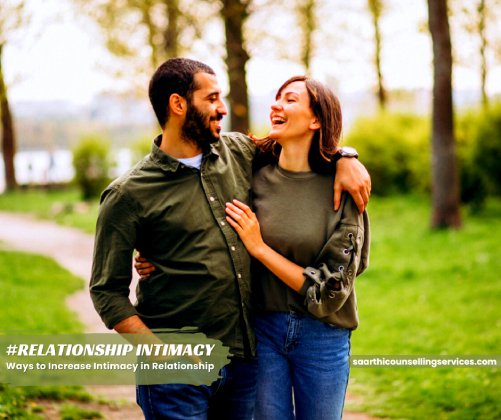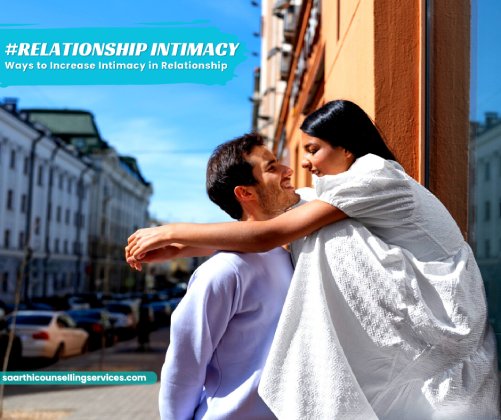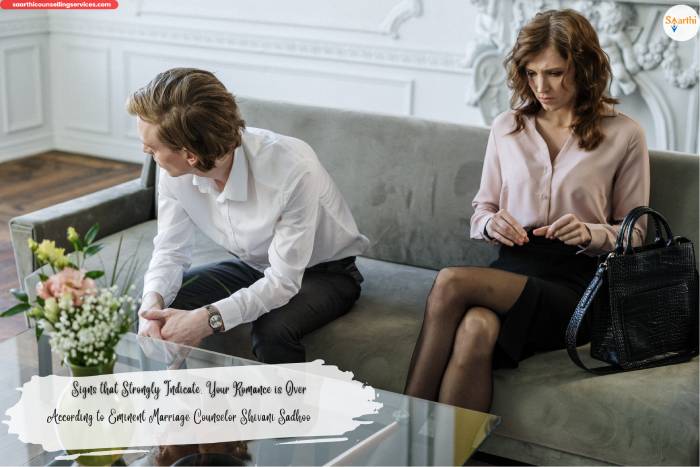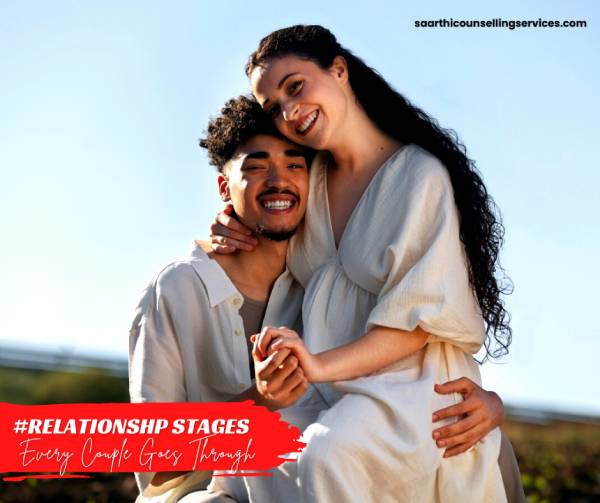Explains Delhi’s Top Marriage Counselor Shivani Sadhoo
Opting to be in a relationship is not the most difficult aspect of wanting to be with someone, it is continuing to stay with them irrespective of the ups and downs. It is to understand their weaknesses and turn them into your strengths. It is the work of being totally transparent with them about your fears and insecurities say, Shivani.
Intimacy
It actually, is the close connection between two people where they share their feelings, emotions, trust, vulnerability, and closeness. However, if one imagines that intimacy requires just remaining in a romantic relationship, that would be false. This can exist between friends, family members, and even strangers in specific situations.
However, when one refers to being in a relationship, people associate intimacy with only getting physically intimate – which is only a physical aspect. While getting intimate physically, surely is an important part of a healthy relationship, it is not everything. There are various ways to increase intimacy and make your relationship healthy and without that, it is probably that the people in the relationship might drift apart opines couples therapist Shivani Sadhoo.
There are 5 kinds of intimacy that might overlap or intersect with each other from time to time. However, the relevance and essence of every single one of them are quite unique. Here is what they are as shared by India’s top marriage counsellor Shivani Misri Sadhoo in this blog.
Emotional intimacy
Emotional intimacy is actually sharing and communicating one’s innermost fears, vulnerabilities, thoughts, feelings, and experiences with another person. This is done when an individual sharing feels comfortable doing so and feels understood and supported in return. It actually, is the feeling of creating closeness with another person by being vulnerable and sharing your actual self with them.
However, forming emotional intimacy depends on both the listener and the one talking. A person can just confide in another person when they know there will be no judgment and that they are completely supported.
Physical intimacy
As the name goes, physical intimacy is fundamentally the physical closeness with another person. This could be in the form of sexual and non-sexual intimacy both, including hugging, holding hands, kissing, and cuddling. Physical intimacy is extremely vital as it means two people are comfortable sharing their physical space and bodies with each other without any judgment.
It is also quite important as physical touch in a relationship triggers oxytocin, which is the feel-good hormone. These hormones are also known as bonding hormones which assist in forming better attachments. When released, these hormones help create feelings of trust, intimacy, and closeness between partners. It is sometimes referred to as the “cuddle hormone” or “love hormone” as it can promote feelings of warmth and affection.
Intellectual intimacy
Every person is an individual and the idea of sharing one’s own opinions, beliefs, and thoughts with another individual without having to about getting into a conflict is intellectual intimacy. Here one person has to believe that their opinions and ideologies related to life or any other aspect are valued instead of feeling that they are pressured to agree with the other person’s views.
This sort of listening can foster a deep and meaningful bond between two individuals, as it needs active listening, open-mindedness, and a willingness to learn from each other. This is a top way to get closer to a partner without having to be physically intimate. Not only that, it helps two people appreciate each other’s thoughts and ideas while connecting on a level beyond surface-level small talk.
Spiritual intimacy
Similar religious practices do not mandatorily have to do with spiritual intimacy. But it could be a shared connection or understanding of spirituality or religion between two individuals. This can include sharing beliefs, values, and practices that are essential to each person. This will also include supporting the spiritual formation and growth.
This could also include engaging in spiritual practices together like praying or going to a religious place or simply meditating. It could be a great thing in a romantic relationship as it will bring a sense of shared purpose and meaning beyond the everyday aspects of the relationship.
Experiential intimacy
Experiential intimacy is generally, the deep connection developed between two people by sharing the same experiences. This could include engaging in activities or working together, forming memories by going on trips or vacations, or simply bonding by doing challenges together or living successes.
This is not just a great way to be intimate in a romantic relationship but also for non-romantic relationships as it supports strengthening trust, communication, and emotional intimacy between individuals. This not just creates a sense of shared history and bond but also helps to form a deep and meaningful relationship.
















